Isaiah 20 meaning explained in AI Summary
Isaiah 20 is a short but powerful chapter in the book of Isaiah, conveying a symbolic message about the futility of trusting in foreign powers instead of God. Here's a summary:
The Symbolic Act (Verses 1-3):
- God instructs Isaiah to remove his sackcloth and sandals, walking around naked and barefoot for three years.
- This act symbolizes the coming humiliation and defeat of Egypt and Cush (Ethiopia), nations the Israelites were tempted to rely on for protection against Assyria.
- Isaiah's unusual behavior serves as a living object lesson for the people.
The Message of Judgment (Verses 4-6):
- God declares that the Egyptians and Cushites will be conquered and led away as captives by the Assyrians.
- This event will bring shame and disappointment to the Israelites who placed their hope in these foreign powers instead of trusting in God.
- The phrase "on that day" emphasizes the certainty of God's judgment.
The Lesson for Israel (Implicit):
- Isaiah's symbolic act and the prophecy against Egypt and Cush serve as a warning to the Israelites.
- They are tempted to rely on political alliances for security, but true safety and deliverance come only from the Lord.
- Trusting in anyone or anything other than God will ultimately lead to disappointment and defeat.
Key Themes:
- The Sovereignty of God: God is in control of history and nations, and his plans will prevail.
- The Folly of Trusting in Foreign Powers: Relying on human strength and political alliances is a misplaced hope.
- The Importance of Trusting in God: True security and deliverance come only from the Lord.
Impact:
Isaiah 20 delivers a timeless message relevant for all people. It reminds us that placing our trust in anything other than God is ultimately futile. True hope and security are found only in a relationship with the Almighty.
Isaiah 20 bible study ai commentary
Isaiah 20 serves as a stark, living parable against trusting in human alliances over God. Through the prophet's own humiliating, three-year public demonstration, God graphically illustrates the impending fate of Egypt and Cush (Ethiopia) at the hands of Assyria. This sign-act served as a direct and visceral warning to Judah and the surrounding nations not to place their hope in the perceived strength of these powers, for their downfall was certain, leaving any who relied on them in utter despair.
Isaiah 20 context
This chapter is dated with precision to the year an Assyrian commander captured the Philistine city of Ashdod (c. 711 BC). Ashdod had led a rebellion against the dominant Assyrian Empire under Sargon II, seeking military support from Egypt, which was then ruled by the Nubian (or Cushite) 25th Dynasty. Judah, under King Hezekiah, was being tempted to join this anti-Assyrian coalition. Isaiah’s prophetic act is therefore a direct, political, and theological intervention, warning Judah in the most dramatic way possible that an alliance with Egypt would be a disastrous failure.
Isaiah 20:1
In the year that the Tartan came to Ashdod, when Sargon the king of Assyria sent him, and he fought against Ashdod and took it,
In-depth-analysis
- Tartan: Not a personal name, but the Hebrew transliteration (tartān) of the Assyrian title for the commander-in-chief, second only to the king.
- Sargon: Sargon II, king of Assyria (reigned 722-705 BC). Pinpointing his reign provides a specific historical anchor for the prophecy.
- The Event: This verse grounds the following prophetic sign in a real, verifiable historical event—the Assyrian conquest of Ashdod. This served as a recent, terrifying example of Assyria’s power and the futility of rebellion without divine backing. Judah would have watched this event with great fear and interest.
Bible references
- 2 Kings 18:17: "And the king of Assyria sent the Tartan... to King Hezekiah..." (Shows "Tartan" as a known Assyrian military title).
- Amos 1:8: "I will cut off the inhabitant from Ashdod..." (An earlier prophecy of judgment against Philistine cities).
Cross references
2 Chr 26:6 (Uzziah's success against Ashdod); Neh 13:23-24 (Ashdod's later influence); Zec 9:6 (prophecy against Ashdod).
Isaiah 20:2
at the same time the LORD spoke by Isaiah the son of Amoz, saying, “Go, and loose the sackcloth from your loins and take off your sandals from your feet.” And he did so, walking naked and barefoot.
In-depth-analysis
- Sackcloth: A garment of rough material (goat's hair) worn as a sign of mourning, distress, or repentance. For Isaiah, it may have been part of his normal prophetic attire. Removing it was a shocking act in itself.
- Naked (
ārôm): This Hebrew word does not necessarily mean fully nude. It most often refers to being stripped of one's outer garments, leaving only a basic loincloth or tunic. This was the state of a destitute person, a slave, or a prisoner of war. - Barefoot: Along with being stripped, this was a sign of great poverty, mourning, and humiliation.
- Isaiah’s Obedience: The prophet’s immediate compliance (“And he did so”) underscores the weight of the divine command and his personal commitment, despite the immense personal shame and discomfort involved. He became a living sermon.
Bible references
- Micah 1:8: "For this I will lament and wail; I will go stripped and naked..." (Another prophet using similar imagery of judgment).
- John 21:7: "...for he was naked... put on his outer garment and threw himself into the sea." (Shows "naked" can mean without an outer robe).
- Jeremiah 13:1-7: Jeremiah is commanded to buy and then ruin a linen loincloth (A comparable prophetic sign-act).
Cross references
1 Sam 19:24 (Saul stripping and prophesying); 2 Sam 6:20 (David uncovered); Hos 1:2-3 (Hosea's marriage as a sign); Eze 4:1-17 (Ezekiel's symbolic siege).
Isaiah 20:3
Then the LORD said, “As my servant Isaiah has walked naked and barefoot for three years as a sign and a portent against Egypt and Cush,
In-depth-analysis
- Three Years: The immense duration of this sign-act made it an unmissable and persistent public spectacle. It was not a momentary gesture but a sustained, humiliating lifestyle for the prophet, emphasizing the certainty and severity of the coming judgment.
- Sign and Portent (
ôt u-môpēt): A standard Old Testament phrase for a symbolic act or miracle that points to a deeper divine truth. Isaiah’s own body became the billboard for God’s message. - My Servant Isaiah: This title is a mark of honor, highlighting that Isaiah’s humiliating act was done in faithful service to God. It frames his shame within the context of divine purpose.
- Target: The message is explicitly directed "against Egypt and Cush" (Ethiopia/Nubia, which was ruling Egypt), the very powers Judah was tempted to trust.
Bible references
- Isaiah 8:18: "Behold, I and the children whom the LORD has given me are signs and portents in Israel..." (Isaiah understood his family's role as divine messages).
- Numbers 14:11: "How long will this people despise me? And how long will they not believe in me, in spite of all the signs that I have done among them?" (Connects signs with the call to believe God over circumstances).
Cross references
Ex 7:3 (signs and wonders in Egypt); Deut 28:46 (curses as signs); Heb 2:4 (God bearing witness by signs).
Isaiah 20:4
so shall the king of Assyria lead away the captives of Egypt and the exiles of Cush, young and old, naked and barefoot, with buttocks uncovered, to the shame of Egypt.”
In-depth-analysis
- The Interpretation: This verse provides the divine explanation for Isaiah’s strange behavior. His personal shame is a direct foreshadowing of the national humiliation Egypt and Cush will suffer.
- King of Assyria: Identified as the specific instrument of God's judgment, showing God's sovereignty over even the pagan empires.
- Young and old: Emphasizes the totality of the defeat. No one will be spared from this humiliation, from the most vulnerable to the most revered.
- Buttocks Uncovered: The ultimate expression of degradation, shame, and helplessness in the ancient world. It signifies complete defeat and dehumanization of captives.
- Shame of Egypt: The explicit purpose was to shatter the prestige and pride of Egypt, which was viewed for centuries as a great, ancient, and invincible power. God was dismantling the very foundation of Judah’s misplaced hope.
Bible references
- 2 Samuel 10:4: "...[Hanun] shaved off half the beard of each, and cut off their garments in the middle, at their hips, and sent them away." (A historical parallel of using shaming to make a political statement).
- Nahum 3:5: "Behold, I am against you... I will lift up your skirts over your face; and I will make nations look at your nakedness..." (God using the same imagery of shameful exposure for Nineveh, the Assyrian capital).
Cross references
Jer 13:26 (lifting skirts as judgment); Lam 1:8 (Jerusalem's nakedness seen); Eze 23:29 (judgment by stripping).
Isaiah 20:5-6
5 Then they shall be dismayed and ashamed because of Cush their hope and of Egypt their glory. 6 And the inhabitants of this coastland will say in that day, ‘Behold, this is what has happened to those in whom we hoped and to whom we fled for help to be delivered from the king of Assyria! And we, how shall we escape?’ ”
In-depth-analysis
- Dismayed and Ashamed: The precise emotional reaction of those who put their faith in a human power that fails. Their military strategy and political wisdom are exposed as foolishness.
- Hope... Glory: These powerful words describe how Judah and others viewed the alliance. Cush was their military "hope," and Egypt was their cultural/political "glory" or boast. God showed both to be empty.
- This Coastland: A reference to the inhabitants of the Mediterranean coastal region, primarily Philistia, but by extension including Judah, which was watching these events unfold and considering its own position.
- How shall we escape?: A rhetorical question of absolute despair. If their "strong" protectors were so easily defeated and humiliated, their own doom seemed sealed. It is the logical end for those whose hope is in anything other than the LORD.
Bible references
- Isaiah 30:3: "Therefore shall the strength of Pharaoh be your shame, and the trust in the shadow of Egypt your humiliation." (A direct parallel message in a more conventional oracle).
- Jeremiah 17:5: "Thus says the LORD: ‘Cursed is the man who trusts in man and makes flesh his strength...’" (The underlying principle of the chapter).
- Psalm 146:3: "Put not your trust in princes, in a son of man, in whom there is no salvation." (The positive wisdom contrasted with Judah's folly).
Cross references
Isa 31:1-3 (Woe to those who go to Egypt); Isa 36:6 (Egypt is a bruised reed); Jer 2:36-37 (shame in trusting Egypt); Lam 4:17 (watching for a nation that could not save).
Isaiah chapter 20 analysis
- Embodied Prophecy: More than just speaking a word, Isaiah became the word. His body was the canvas on which God painted a picture of judgment and shame. This prophetic sign-act demonstrates that faith is not just an intellectual belief but involves the totality of one's life in obedience to God, regardless of personal cost.
- Theology of Politics: Isaiah 20 is a powerful critique of pragmatic, faithless politics. The "wise" political move was to build a coalition with the regional superpower (Egypt) to counter the global superpower (Assyria). God declares this "wisdom" to be folly. True national security and statecraft, according to Isaiah, begin and end with trust in the sovereign Lord of history.
- Prefigurement of Christ: While not a direct prophecy, Isaiah’s experience of public humiliation in service to God’s redemptive warning faintly prefigures Christ. Isaiah was stripped and shamed to save Judah from a political delusion; Christ was stripped and shamed on the cross (Phil 2:7-8, Matt 27:28) to save his people from sin and death. Isaiah’s shameful state visually preached a warning; Christ's shameful state on the cross preached the gospel of substitutionary atonement.
Isaiah 20 summary
In 711 BC, as Judah considered joining an anti-Assyrian rebellion, God commanded Isaiah to walk stripped like a captive for three years. This living parable was a sign that the rebellion's main supporters, Egypt and Cush, would be utterly humiliated and exiled by Assyria. The prophecy was a stark warning to Judah that trusting in human power is futile and leads to despair, pointing them instead to trust solely in the LORD.
Isaiah 20 AI Image Audio and Video
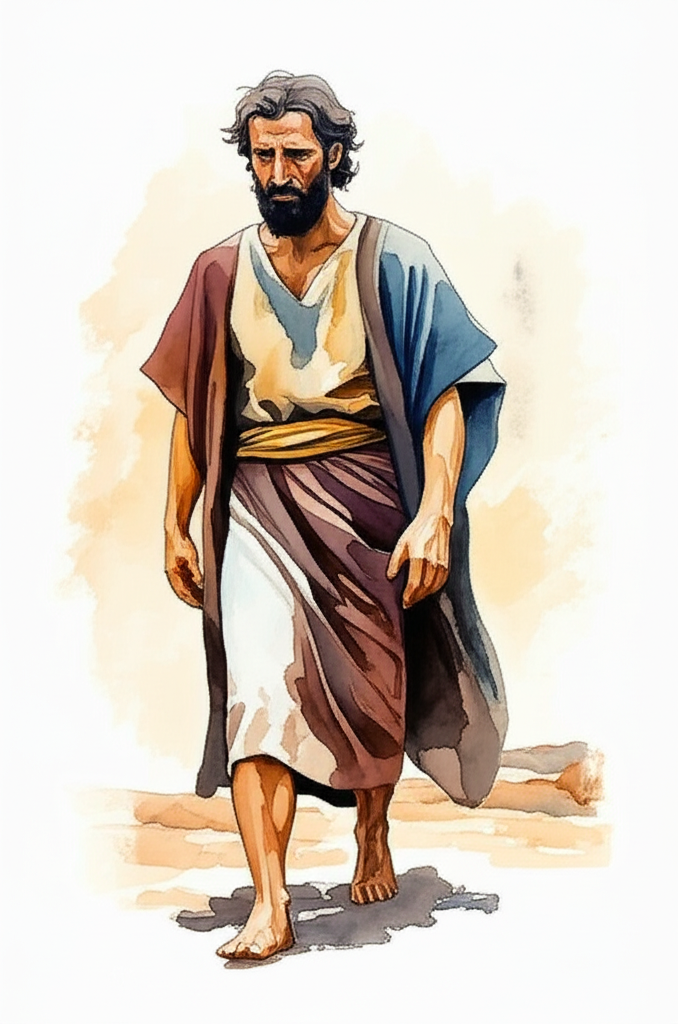
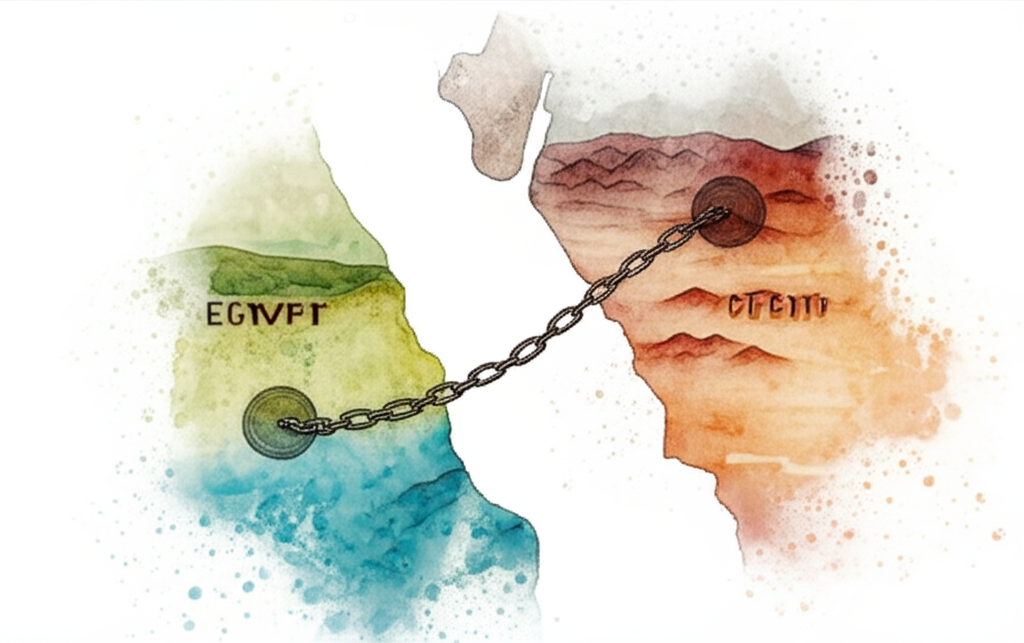
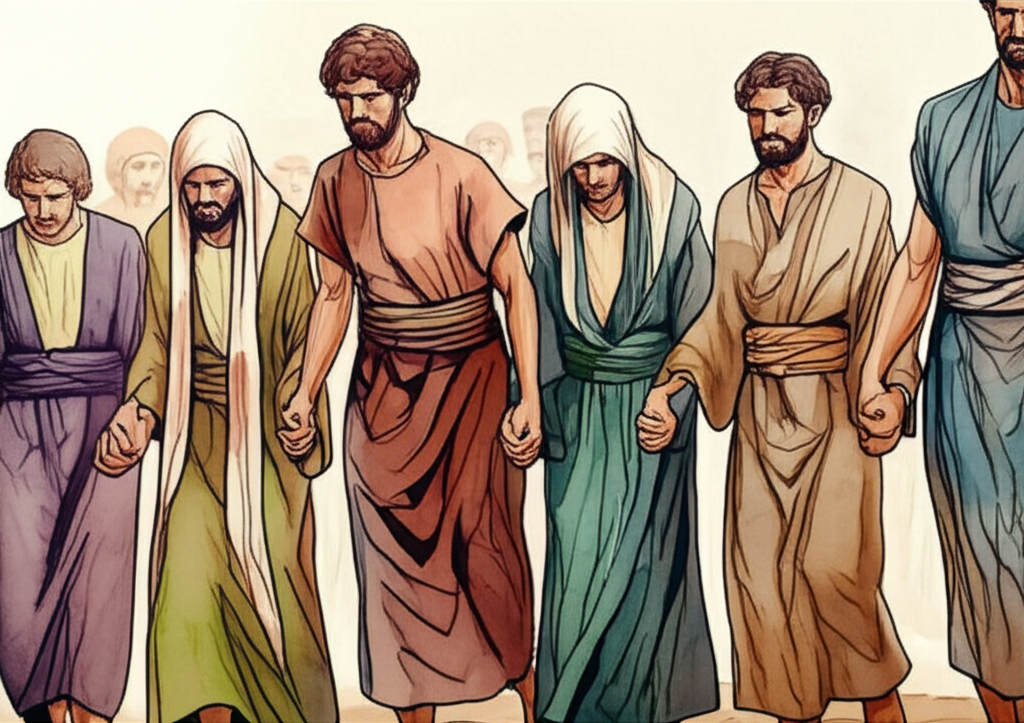
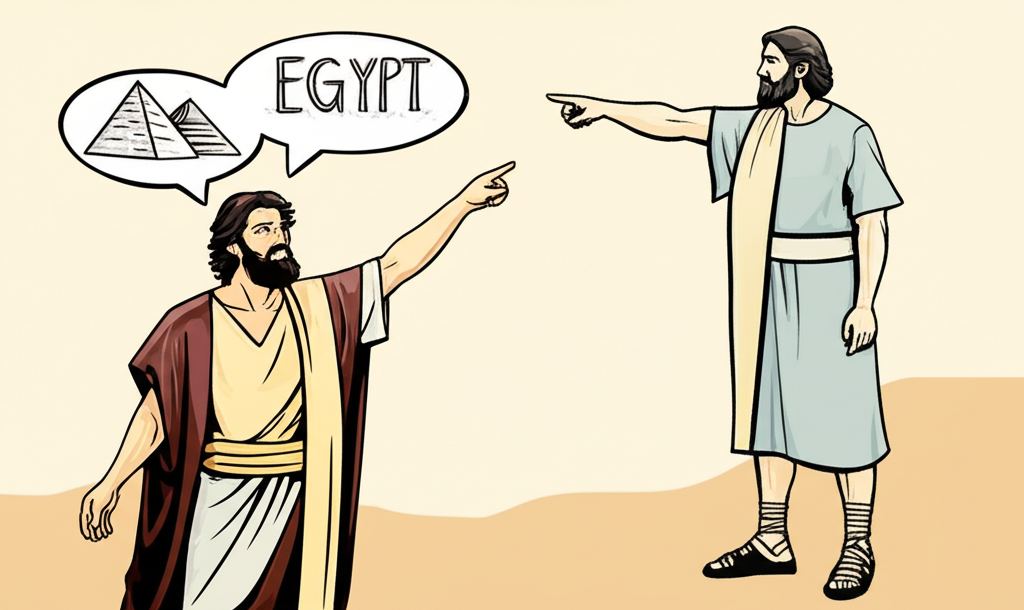

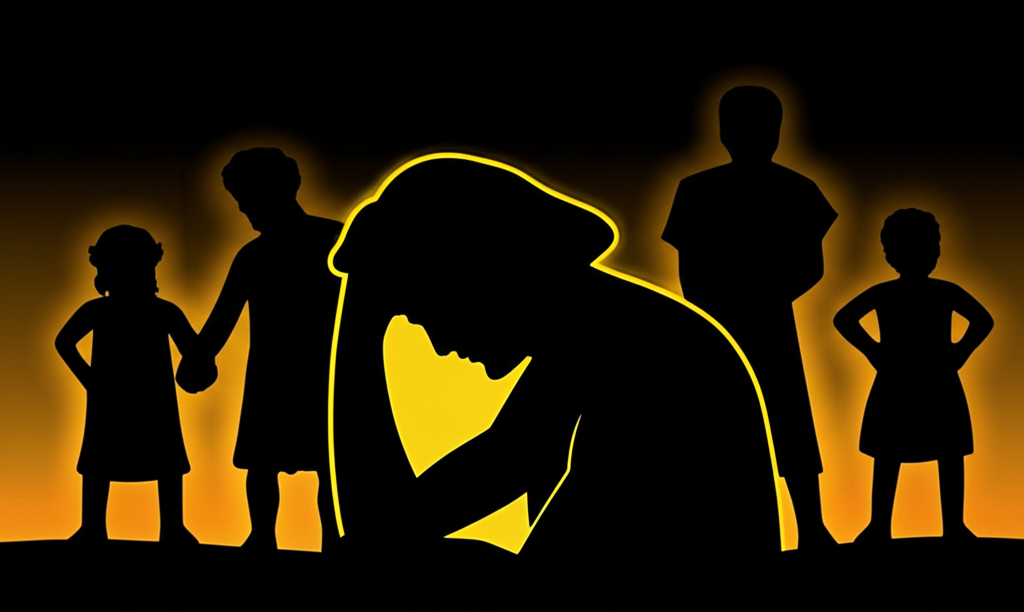
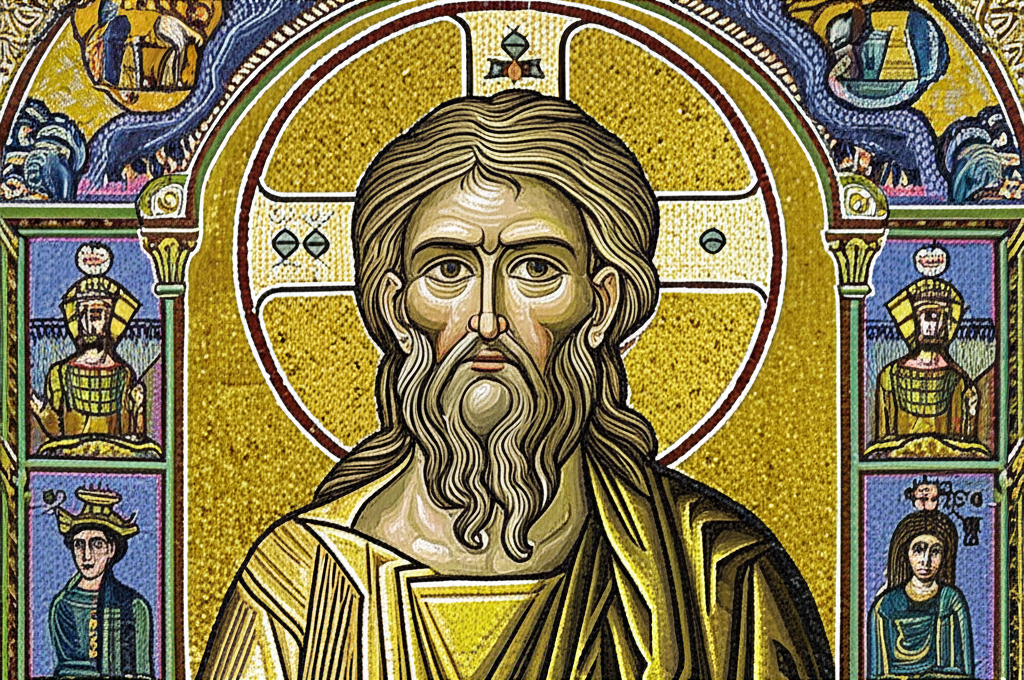


Isaiah chapter 20 kjv
- 1 In the year that Tartan came unto Ashdod, (when Sargon the king of Assyria sent him,) and fought against Ashdod, and took it;
- 2 At the same time spake the LORD by Isaiah the son of Amoz, saying, Go and loose the sackcloth from off thy loins, and put off thy shoe from thy foot. And he did so, walking naked and barefoot.
- 3 And the LORD said, Like as my servant Isaiah hath walked naked and barefoot three years for a sign and wonder upon Egypt and upon Ethiopia;
- 4 So shall the king of Assyria lead away the Egyptians prisoners, and the Ethiopians captives, young and old, naked and barefoot, even with their buttocks uncovered, to the shame of Egypt.
- 5 And they shall be afraid and ashamed of Ethiopia their expectation, and of Egypt their glory.
- 6 And the inhabitant of this isle shall say in that day, Behold, such is our expectation, whither we flee for help to be delivered from the king of Assyria: and how shall we escape?
Isaiah chapter 20 nkjv
- 1 In the year that Tartan came to Ashdod, when Sargon the king of Assyria sent him, and he fought against Ashdod and took it,
- 2 at the same time the LORD spoke by Isaiah the son of Amoz, saying, "Go, and remove the sackcloth from your body, and take your sandals off your feet." And he did so, walking naked and barefoot.
- 3 Then the LORD said, "Just as My servant Isaiah has walked naked and barefoot three years for a sign and a wonder against Egypt and Ethiopia,
- 4 so shall the king of Assyria lead away the Egyptians as prisoners and the Ethiopians as captives, young and old, naked and barefoot, with their buttocks uncovered, to the shame of Egypt.
- 5 Then they shall be afraid and ashamed of Ethiopia their expectation and Egypt their glory.
- 6 And the inhabitant of this territory will say in that day, 'Surely such is our expectation, wherever we flee for help to be delivered from the king of Assyria; and how shall we escape?' "
Isaiah chapter 20 niv
- 1 In the year that the supreme commander, sent by Sargon king of Assyria, came to Ashdod and attacked and captured it?
- 2 at that time the LORD spoke through Isaiah son of Amoz. He said to him, "Take off the sackcloth from your body and the sandals from your feet." And he did so, going around stripped and barefoot.
- 3 Then the LORD said, "Just as my servant Isaiah has gone stripped and barefoot for three years, as a sign and portent against Egypt and Cush,
- 4 so the king of Assyria will lead away stripped and barefoot the Egyptian captives and Cushite exiles, young and old, with buttocks bared?to Egypt's shame.
- 5 Those who trusted in Cush and boasted in Egypt will be dismayed and put to shame.
- 6 In that day the people who live on this coast will say, 'See what has happened to those we relied on, those we fled to for help and deliverance from the king of Assyria! How then can we escape?'?"
Isaiah chapter 20 esv
- 1 In the year that the commander in chief, who was sent by Sargon the king of Assyria, came to Ashdod and fought against it and captured it ?
- 2 at that time the LORD spoke by Isaiah the son of Amoz, saying, "Go, and loose the sackcloth from your waist and take off your sandals from your feet," and he did so, walking naked and barefoot.
- 3 Then the LORD said, "As my servant Isaiah has walked naked and barefoot for three years as a sign and a portent against Egypt and Cush,
- 4 so shall the king of Assyria lead away the Egyptian captives and the Cushite exiles, both the young and the old, naked and barefoot, with buttocks uncovered, the nakedness of Egypt.
- 5 Then they shall be dismayed and ashamed because of Cush their hope and of Egypt their boast.
- 6 And the inhabitants of this coastland will say in that day, 'Behold, this is what has happened to those in whom we hoped and to whom we fled for help to be delivered from the king of Assyria! And we, how shall we escape?'"
Isaiah chapter 20 nlt
- 1 In the year when King Sargon of Assyria sent his commander in chief to capture the Philistine city of Ashdod,
- 2 the LORD told Isaiah son of Amoz, "Take off the burlap you have been wearing, and remove your sandals." Isaiah did as he was told and walked around naked and barefoot.
- 3 Then the LORD said, "My servant Isaiah has been walking around naked and barefoot for the last three years. This is a sign ? a symbol of the terrible troubles I will bring upon Egypt and Ethiopia.
- 4 For the king of Assyria will take away the Egyptians and Ethiopians as prisoners. He will make them walk naked and barefoot, both young and old, their buttocks bared, to the shame of Egypt.
- 5 Then the Philistines will be thrown into panic, for they counted on the power of Ethiopia and boasted of their allies in Egypt!
- 6 They will say, 'If this can happen to Egypt, what chance do we have? We were counting on Egypt to protect us from the king of Assyria.'"
- Bible Book of Isaiah
- 1 The Wickedness of Judah
- 2 The Mountain of the Lord
- 3 Judgment on Judah and Jerusalem
- 4 The Branch of the Lord Glorified
- 5 The Vineyard of the Lord Destroyed
- 6 Isaiah's Vision of the Lord
- 7 Isaiah Sent to King Ahaz
- 8 The Coming Assyrian Invasion
- 9 For to Us a Child Is Born
- 10 Judgment on Arrogant Assyria
- 11 The Righteous Reign of the Branch
- 12 The Lord Is My Strength and My Song
- 13 The Judgment of Babylon
- 14 The Restoration of Jacob
- 15 An Oracle Concerning Moab
- 16 Send the lamb to the ruler of the land, from Sela, by way of the desert, to the
- 17 An Oracle Concerning Damascus
- 18 An Oracle Concerning Cush
- 19 An Oracle Concerning Egypt
- 20 A Sign Against Egypt and Cush
- 21 Fallen, Fallen Is Babylon
- 22 An Oracle Concerning Jerusalem
- 23 An Oracle Concerning Tyre and Sidon
- 24 Judgment on the Whole Earth
- 25 God Will Swallow Up Death Forever
- 26 You Keep Him in Perfect Peace
- 27 The Redemption of Israel
- 28 Judgment on Ephraim and Jerusalem
- 29 The Siege of Jerusalem
- 30 Do Not Go Down to Egypt
- 31 Woe to Those Who Go Down to Egypt
- 32 A King Will Reign in Righteousness
- 33 O Lord, Be Gracious to Us
- 34 Judgment on the Nations
- 35 The Ransomed Shall Return
- 36 Sennacherib Invades Judah
- 37 Hezekiah Seeks Isaiah's Help
- 38 Hezekiah's Sickness and Recovery
- 39 Envoys from Babylon
- 40 Comfort for God's People
- 41 Fear Not, for I Am with You
- 42 The Lord's Chosen Servant
- 43 Israel's Only Savior
- 44 Israel the Lord's Chosen
- 45 The great king Cyrus
- 46 The Idols of Babylon and the One True God
- 47 The Humiliation of Babylon
- 48 Israel Refined for God's Glory
- 49 The Servant of the Lord
- 50 Israel's Sin and the Servant's Obedience
- 51 The Lord's Comfort for Zion
- 52 The Lord's Coming Salvation
- 53 Who has believed our report
- 54 The Eternal Covenant of Peace
- 55 The Compassion of the Lord
- 56 Salvation for Foreigners
- 57 Israel's Futile Idolatry
- 58 True and False Fasting
- 59 Evil and Oppression
- 60 Arise Shine for your light has come
- 61 The Spirit of the Lord is upon me
- 62 Zion's Coming Salvation
- 63 The Lord's Day of Vengeance
- 64 Oh that you would rend the heavens and come down, that the mountains might
- 65 Judgment and Salvation
- 66 The Humble and Contrite in Spirit